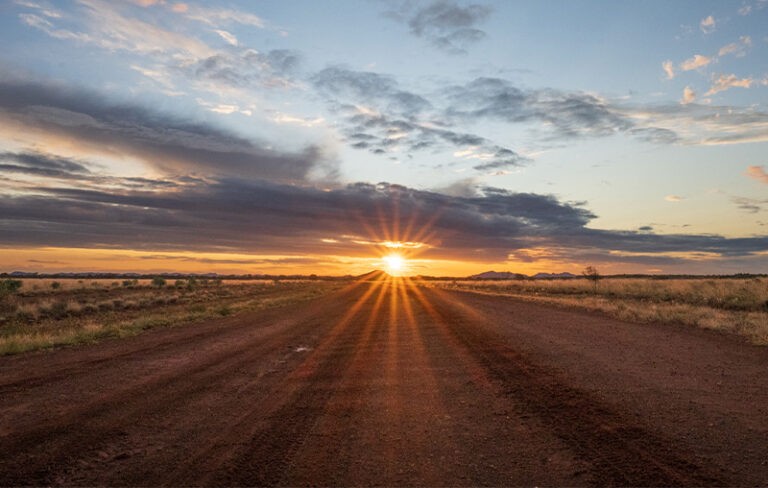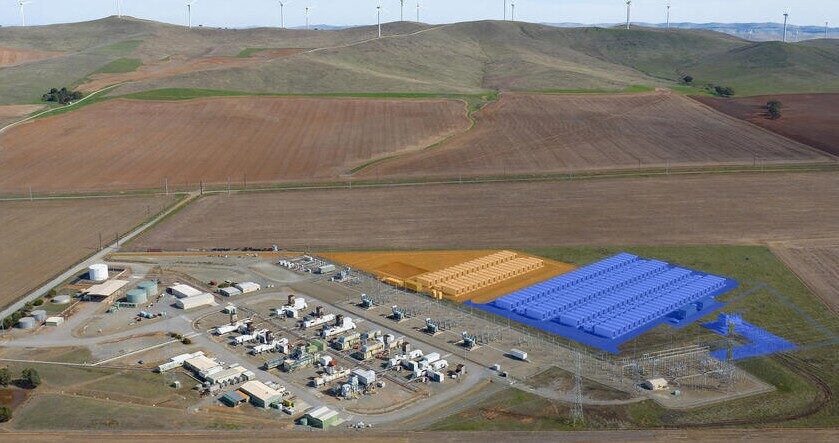The Western Australia (WA) Gibson Desert First Nations community of Blackstone (Papulankutja) has been selected to test a scalable, modular hybrid energy solution.
If successful it will be used as a blueprint to free other Aboriginal communities from dependence on diesel-powered electricity generation.
Blackstone’s diesel-fired power station burnt down in 2021, and the community has been powered by temporary diesel generation since then.
The Blackstone Hybrid Energy Project (BHEP) state-of-the-art microgrid will consist of up to 778 kW of solar panels and a 2 MWh battery energy storage system (BESS). It will also retain 400 kW of diesel generation.
The definition of “very remote”, Blackstone is located 1,691 kilometres northwest of Perth, 2,292 kilometres by road south of Darwin, and 75 kilometres west of the Surveyor General’s Corner, which marks the junction of the Northern Territory (NT) and South Australia (SA) borders adjacent to the WA border.
Ngaanyatjarra Council Group (NCG) Chief Executive Officer Thomas Williams said the transformative project aligns perfectly with the NCG’s broader sustainability goals of reducing emissions and empowering communities with reliable, clean energy.
“By transitioning Papulankutja from diesel to a renewable microgrid, we will cut carbon emissions and energy costs and reinvest in the community through local training and jobs, creating a sustainable model that will benefit our people for future generations,” Williams said.
The pilot is funded with a combined $12.7 million (USD 8.3 million) from the Australian Renewable Energy Agency (ARENA) and WA government.
ARENA’s $3.6 million issued through its Regional Microgrids program First Nations community microgrids stream, and the state’s $9.12 million contribution will support delivery of the BHEP to be managed by state-owned energy provider Horizon Power.
Acting Horizon Power Chief Executive Officer Krystal Skinner said the funding announcement marks a significant milestone for Horizon Power’s Remote Communities (HPRC) program.
“It reflects our strong commitment to energy equity for Aboriginal people living in remote communities across Western Australia,” Skinner said.
“We are proud to support the clean energy transition in partnership with First Nations people – grounded in respect, shared decision-making, and empowerment.”
Skinner added the initiative will deliver safer, more reliable power but also reinvest back into the community – building long-term capability and creating broader economic opportunities into the future.
Horizon Power will establish a community energy fund (CEF) which will share savings from the project to support community-nominated energy initiatives and return financial benefits directly to the people living there.
It will also create employment opportunities with the roll out a training program to develop local skills for ongoing operations and maintenance of the microgrid.
ARENA Chief Executive Officer Darren Miller said Horizon Power’s project is a significant step towards providing cleaner and more reliable energy to remote First Nations communities.
“The Blackstone Hybrid Energy Project demonstrates that renewable energy development and community empowerment can go hand in hand, delivering not only clean, reliable power, but also long-term social and economic benefits for remote communities,” Miller said.
“The success of this project could serve as a blueprint for delivering accessible, affordable and clean energy to other remote First Nations communities.”
This content is protected by copyright and may not be reused. If you want to cooperate with us and would like to reuse some of our content, please contact: editors@pv-magazine.com.









By submitting this form you agree to pv magazine using your data for the purposes of publishing your comment.
Your personal data will only be disclosed or otherwise transmitted to third parties for the purposes of spam filtering or if this is necessary for technical maintenance of the website. Any other transfer to third parties will not take place unless this is justified on the basis of applicable data protection regulations or if pv magazine is legally obliged to do so.
You may revoke this consent at any time with effect for the future, in which case your personal data will be deleted immediately. Otherwise, your data will be deleted if pv magazine has processed your request or the purpose of data storage is fulfilled.
Further information on data privacy can be found in our Data Protection Policy.